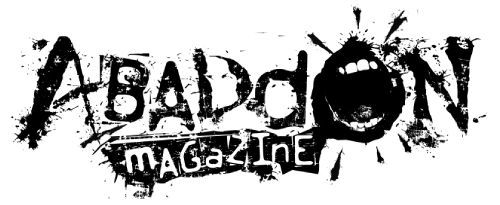 Label: Reigning Phoenix Music
Label: Reigning Phoenix Music
Release date: November 22nd, 2024
Opeth’s fourteenth studio album, “The Last Will and Testament”, represents a unique and ambitious exploration of both their death metal roots and progressive evolution. The album blends the darker, heavier elements of their earlier work with the more atmospheric and complex compositions of their more recent albums. The result is a musical experience that is both nostalgic and forward-thinking, offering a fresh interpretation of the band’s legacy while pushing their creative boundaries.
Musically, the album refuses to conform. It shifts fluidly from sweeping symphonic progressive rock to intricate jazz-fusion, and from raw death metal textures to grooves influenced by Middle Eastern traditions. The transitions are often abrupt and occasionally jarring, reflecting the emotional fragmentation experienced by the album’s characters. Yet, the band’s virtuosic command of their instruments remains consistently evident.
The production is warm and organic, effectively capturing both the intimacy and the intensity of the compositions. The guitars of Mikael Åkerfeldt and Fredrik Åkesson maintain a powerful presence without becoming over-compressed. Joakim Svalberg’s work on keyboards, Mellotron, and Moog synthesizers is complemented by Mikael Åkerfeldt’s string arrangements, all of which are given ample room to breathe within the mix.
Drummer Waltteri Väyrynen delivers a precise and expressive performance that injects a renewed energy throughout the album. Martín Méndez contributes rich, articulate bass lines that anchor the album’s more experimental moments with clarity and warmth. Together, their contributions add depth and nuance without overpowering the overall sound.
The result is a sonic landscape that feels timeless. It avoids the overly polished tendencies of many modern productions and instead embraces a textured, dynamic quality that feels both fresh and enduring.
Guest appearances enrich the sonic tapestry further: Jethro Tull’s Ian Anderson lends his flute to several tracks, weaving in an ethereal layer that elevates the album’s most introspective passages. Europe’s Joey Tempest contributes background vocals, subtly enhancing the textures without overshadowing the core narrative. These collaborations are more than decorative. They are ghosts in the margins, contributing to the album’s spectral quality.
The album begins with “§1”, which acts as a ceremonial reintroduction to Opeth’s death metal roots. Åkerfeldt’s growls, though powerful, do not quite reach the raw depth of his earlier work, but there is a tension in this track, as the growls contrast with Åkerfeldt’s ethereal clean vocals. This tension is a central theme throughout the album, where aggressive, brutal moments are tempered by softer, more introspective passages. “§1” sets the tone for this dynamic, with its dark atmosphere and a refrain echoing the finality of death, much like a last will being read aloud. It is an understated but haunting introduction to the narrative journey that follows.
“§2” follows, shifting the focus to the perspective of the daughter, who inherits not riches but emotional trauma. The gothic tone of this track, paired with a suffocating intensity in the lyrics, underscores her conflict. Åkerfeldt sings, “Save me / Scold me / Cleanse me”, with each word dripping in repressed rage and a profound spiritual struggle. Here, belief is a burden, not a source of salvation, and the daughter’s painful inheritance is both spiritual and emotional. This track adds another layer to the album’s thematic exploration, positioning faith as a curse passed down through generations.
The story deepens in “§3”, which introduces a more intimate perspective, possibly that of a hidden lover or caretaker. This track adds a raw emotional complexity, revealing secret histories and forbidden love, with the haunting beauty of the music reflecting the tragic nature of the narrative. The lush yet emotionally charged composition evokes a sense of tragic love, lost opportunities and hidden sorrow. “§3” captures the album’s most tender moment, as the narrative turns inward to explore the pain and shame hidden behind the family’s public facade.
“§4” marks a dramatic shift. The once-dignified figure of the deceased now stripped of his illusions, erupts in a frenzy of accusations and delirium. This track is the most intense moment of the album, capturing the breakdown of the central character, whose dark legacy is revealed in full. Accusations of infidelity, betrayal, and deceit fly as the man’s life unravels in a storm of vitriol. The music mirrors this collapse, with an aggressive and chaotic sound that encapsulates the grotesque beauty of the destruction. There is no redemption here. There is only raw, unfiltered rage and the crumbling of a once-glorious myth.
“§5” follows as a ceremonial burial. However, it is not the patriarch himself who is buried, but rather his illusions. The daughter, now the reluctant heir, is left to carry the weight of a shattered legacy. The music here is both anthemic and elegiac, reflecting the cruel irony of her inheritance. The emotional weight of the track is amplified by its darker tones, as the daughter is symbolically crowned with thorns rather than laurel. Her inheritance is not one of wealth or honor, but of sorrow, and the music builds to a powerful crescendo that emphasizes this tragic reality.
In “§6”, the album takes a spectral turn, as the father, now a ghost, speaks from beyond the grave. This track is quiet, unsettling, and reflective, as the father’s final wishes are revealed: destroy the myths, undo the machine, and break free from the chains of blood and tradition. The music, sparse and haunting, echoes the quiet resignation of a man who has come to terms with his failure. The daughter is urged to walk away, to forge a new path unencumbered by the past. The song’s somber tone hints at a fragile hope, which is detached from the bitterness of the legacy left behind.
Finally, “§7” closes the album with a sparse, final moment. There is no grand resolution here, and there is no climactic finale. The song fades away with a whispered invocation, a final confession from the patriarch who now admits that destruction was his only honest act. The refrain, “Deus, Patria, Rex, Sanguis”, feels less like a prayer and more like an epitaph. It marks the end of an era. The music is stripped down and minimal, reflecting the emptiness left in the wake of the patriarch’s demise. The daughter’s inheritance is nothing. She inherits no legacy and no glory. She is left with only silence, and in that silence, there is the potential for freedom.
The album’s closing track, “A Story Never Told”, serves as a melancholic epilogue, offering a moment of reflection and catharsis. This is the one track with a traditional title, and it stands apart from the rest of the album in its quieter, more restrained nature. The somber beauty of the song allows the emotional weight of the album to breathe, providing a brief but necessary release from the intensity of the preceding tracks. It feels like a rare moment of peace after an album filled with emotional upheaval and sonic experimentation.
“The Last Will and Testament” is a concept album in the truest sense, with each song serving as a chapter in a tragic, operatic narrative of family, legacy and spiritual reckoning. It is Opeth’s most literary and ambitious work to date, blending the complexity of progressive rock with the emotional depth of a modern tragedy. The album’s unpredictability and complexity will likely divide listeners. Those who crave the band’s heavier roots will find satisfaction in the growls and riffs that punctuate several tracks. However, others may find the album’s non-traditional structure and thematic density difficult to digest.
In the end, “The Last Will and Testament” is neither a full return to Opeth’s death metal past nor a bold leap forward. It’s a complex, often bewildering record, one that captures the band at a crossroads in their career. There are moments of brilliance and beauty, but they are scattered throughout an album that occasionally feels lost in its own ambition. For those willing to dive deep into its many layers, this album offers a testament to the band’s willingness to push boundaries, even if it means embracing the contradictions within their own history.






